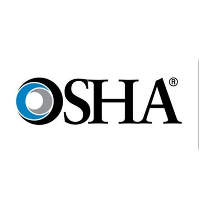
OSHA and Boating are nothing new.
What is Good Housekeeping on a boat?
Good housekeeping implies that we always organize, unclutter, and keep hazard-free conditions on our vessel. I know, this is a relatively simple concept. So, the benefits that can be realized from good housekeeping practices are far reaching. This affects not only workers’ safety but also their health and productivity. Improvements in worker health and productivity lead to lower operating costs. This benefits to both the workers and the employer.
What makes good Housekeeping?
Good housekeeping is not just about cleanliness. It is the basic foundation for accident and fire prevention. It requires attention to details. Consider the layout of the worksite or facility. How about identification and marking of physical hazards. In the same vein, ensuring the adequate number of storage facilities, and routine maintenance.
What are the benefits of Good Housekeeping?
Here are some of the many benefits that can be gained when implementing good workplace housekeeping:
Improved Worker Safety
1 Fewer trip and slip incidents where walkways and working surfaces are free of clutter and spills.
2 Decreased fire hazards as a result of the reduction or elimination of waste, dust, debris, and other flammable materials.
3 Reduces the number of workers being struck by objects through organizing and proper storing of materials, tools, and equipment.
4 Fewer worker injuries as a result of defective or malfunctioning parts through timely maintenance of machinery, equipment, or systems.
Improved Worker Health
Reduced worker exposure to hazardous substances is always the best route. A regular cleaning schedule helps to eliminate harmful dust and vapor buildups. That is to say, regular servicing, cleaning, and supplying sanitation facilities are actually pretty easy to accomplish. Simple things like signage can help in this area as well.
Increased Worker Productivity/Reduced Costs
Safe work environments lead to healthier workers, higher worker morale, and increased productivity. Workplace cleanup and maintenance will ensure better control over tools and materials as well as the inventory of supplies. Tidy and clean work areas allow for more effective use of space. Improved preventive maintenance can reduce property damage. Increased worker participation in general housekeeping helps reduce the workload and cost of janitorial staff. At the end of the day, you don’t have to ask much of the crew. A little effort from everyone makes it happen.
Slips, Trips, and Falls
The U.S. Department of Labor reports that slips, trips, and falls (STFs) account for approximately 15 percent of all accidental workplace deaths. Second only to motor vehicle accidents as a cause of worker fatalities. Good housekeeping practices can substantially reduce the underlying causes of STFs in shipyard employment. For example, good housekeeping practices can reduce the risk of tripping on misplaced equipment, tools, and other items that have been left on the floor. Crews achieve a huge risk reduction in the shipyard when steps are taken to improve housekeeping practices.
Fire Hazards on Boats
Good housekeeping can also improve the health and safety of shipyard workers by reducing exposure to hazardous chemicals and unsafe conditions, including fires or explosions. Good housekeeping practices help ensure that containers used for hazardous substances are in their appropriate storage areas. Combustible dusts, when knocked from elevated surfaces or otherwise made present in the air, can result in fires and explosions. Certain materials or substances can pose a fire hazard when spilled or combined unintentionally. That is why it is important to avoid leaving such materials unattended or in close proximity to ignition sources.
Clutter in the workplace can obstruct walkways, which could make it more difficult to exit during a fire or other emergency. The improvement of workers’ attitudes is another advantage to maintaining good housekeeping. Good housekeeping practices help ensure neat, organized, and safe workspaces, which can reduce stress and improve morale. An increase in productivity and lower operating costs may also result when workers spend less time tracking down a needed tool or other item. All of this comes as a result of OSHA and Boating.
The Bottom line
Reducing workplace injuries will also help lower costs. Workplace injuries result in substantial expenditures. Worker injuries lead to missed days at work, higher workers’ compensation premiums, and increased spending on the hiring and training of new or temporary workers. See OSHA’s Safety Pays website to assess information on the impact of occupational injuries and illnesses on business profitability.
In conclusion
We here at Connecticut Boating Certificates LLC take boating safety very seriously. Please read more About Us.






